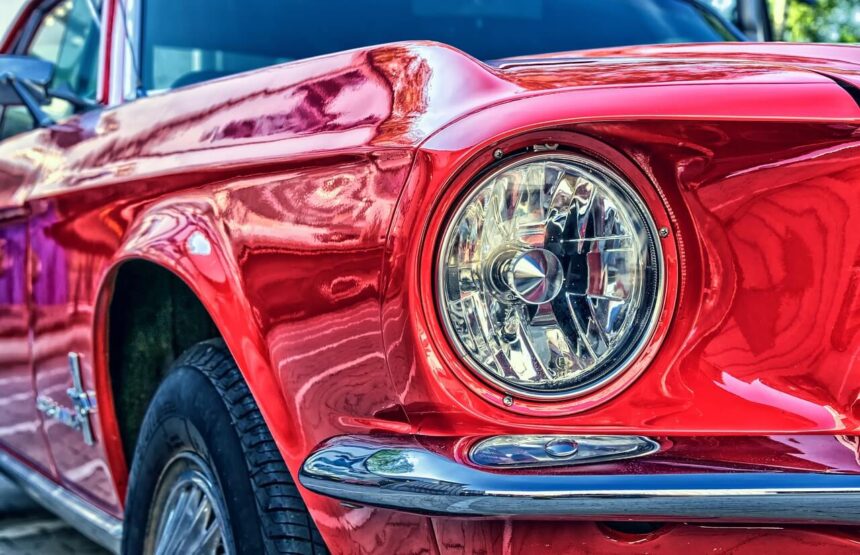If you’re considering buying a car, this guide is for you.
I know that it can be tough to make such a big purchase on your own. That’s why we created this guide to have all the information and advice you need before making your decision.
It doesn’t matter if you’re looking for an SUV or sports car – we’ll help point out what’s essential and what isn’t when choosing the right vehicle for yourself.
We’ll cover everything from the basics of what to look out for when purchasing your first car to more advanced topics like financing and insurance. You’re in good hands with our team of automotive experts!
We know that buying a new or used car can be overwhelming, but we want to make it as easy and stress-free as possible for you. You might think that buying a new car is just like buying anything online, but many factors are involved in making sure it fits into your lifestyle and budget perfectly.
This guide will give you all the necessary information so that by the end of reading it, you feel confident in knowing exactly which vehicle is best suited to fit your needs!
So let’s get started.
What you should consider before buying a car
Before you go out and buy a car, it’s essential to put the following into consideration:
1. Can you afford it?
You should know that a car is a costly purchase. So before going out and buying one, you should make sure you have the money for this big purchase.
Of course, all payment methods are available, but it’s essential to ensure that you do not take on more debt than you can handle.
See these cheap cars in Kenya.
2. Can you afford to maintain it?
Another critical thing to think about before buying a car is maintenance. Because let’s be honest, cars are not made to last forever, and they get old very quickly.
It would be best to consider budgeting for repairs and spare parts to ensure your car will last for years.
This includes oil changes, new tires every couple of years, or transmission flushes if your vehicle requires them.
3. Do you need a lot of space?
It’s good to know your lifestyle in advance so that when shopping around for a suitable car model, it fits into your life perfectly without any problems.
For example, if you have a big family or drive a lot – then it’s crucial to think about this beforehand because some models can be limiting when it comes to space.
4. Are you driving long distances?
If your daily commute is over an hour each way, then you need to make sure that your car has comfortable seats and plenty of room in the trunk for all of your stuff.
Otherwise, trips can quickly become uncomfortable experiences. Of course, if you work from home every day – then seat comfort might not be as crucial.
5. What type of fuel does it use?
Most cars nowadays run on gasoline, but there are still many diesel-powered vehicles in circulation.
It’s important to consider whether you’re comfortable buying gasoline regularly because some cars need premium-grade fuel to work efficiently.
So before making your final decision about what type of car to buy, put the following into consideration:
Do I have the money for it? Can I afford to maintain it? Do I need a lot of space? Do I drive long distances every day?
Does this car use gasoline or diesel fuel? If you answer all these questions honestly and consider them beforehand, picking out your perfect ride will be much easier!
What you should consider when choosing a used car
When shopping for a used vehicle, it’s essential to keep several things in mind. The following article will give you some insight into what to look for.
#1. How much does it cost?
One of the first questions you should ask yourself is how much you are willing to pay for the car that suits your needs best.
This depends on what type of lifestyle you have and what features are essential for you.
#2. The condition of the vehicle
Just because a used car looks good outside doesn’t mean that things are running smoothly on the inside! It would help if you took some time inspecting any vehicle thoroughly before committing to buying it.
Here are some factors to consider when checking out a used car:
Bodywork – Look closely at the paint job and body panels and inside the trunk, doors, and hood.
All these places can hide scratches, dents, and rust. Look for color differences between panels that are usually adjacent because these could indicate that the vehicle was in an accident or had bodywork done.
Check out the windshield for chips and cracks.
Interior – If possible, look at upholstery, carpeting, and dashboard materials. These car parts can get dirty quickly, so you should check how clean they are.
It would help if you also opened the glove compartment, storage compartments, ashtray, cup holders, etc., to see their condition.
Try opening the trunk to inspect both interior and underside of the deck lid!
Steering wheel – Take a close look at the steering wheel leather/vinyl cover. Check the stitching, cracks, and tears.
#3. Do a test drive
To get to know your potential new car better, you should take it for a test drive. Go on the highway if possible so you can feel how it handles in different speed ranges and follow these steps:
Start slowly! If they’re available, sit in the passenger seat when the seller is driving the car. This way, you’ll be able to see what they are doing with both hands on the wheel!
Note any unusual sounds, vibrations, or smells that might indicate engine, transmission, or suspension problems.
Try testing acceleration from a dead stop, going up steep hills, and braking at high speeds to determine how responsive the engine/ brakes are.
Another test is stopping at a red light and accelerating as quickly as possible. On straight stretches of road, pay attention to how well the car handles! If you follow these steps closely, you’ll be able to tell if this vehicle is right for you.
#4. Do a complete check
As a final step before buying a used car, have a mechanic thoroughly inspect it. Some things that need checking are:
- Invoices for new parts – Sometimes, people replace parts without repairing the underlying problem with the engine or other components.
- Brake pads and discs – These should not be metal on metal (i.e., they shouldn’t be touching);
- Battery, fuses, and battery terminals
- Check for corrosion; Engine oil level/condition – You should be able to see the full mark on the oil dipstick.
- Exhaust system and catalytic converter – These should not have damage such as holes, dents, or rust.
The bottom line: Buying a used car is a serious commitment! If you do your homework and follow these steps closely, you’ll be well on finding that perfect vehicle!







